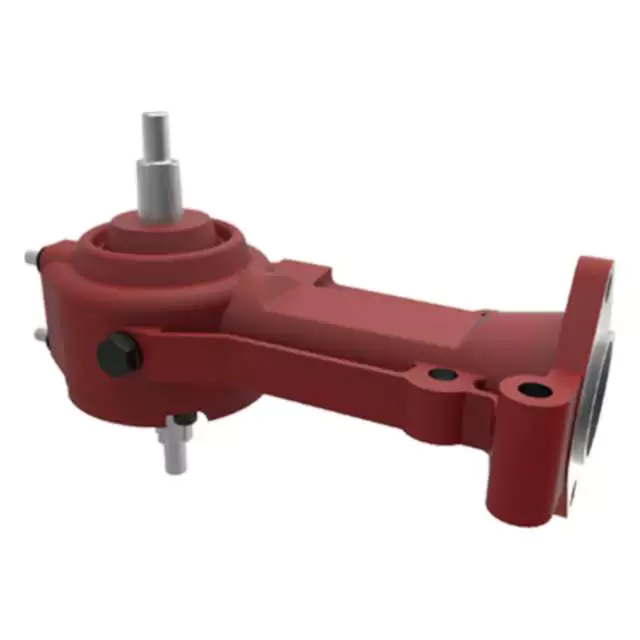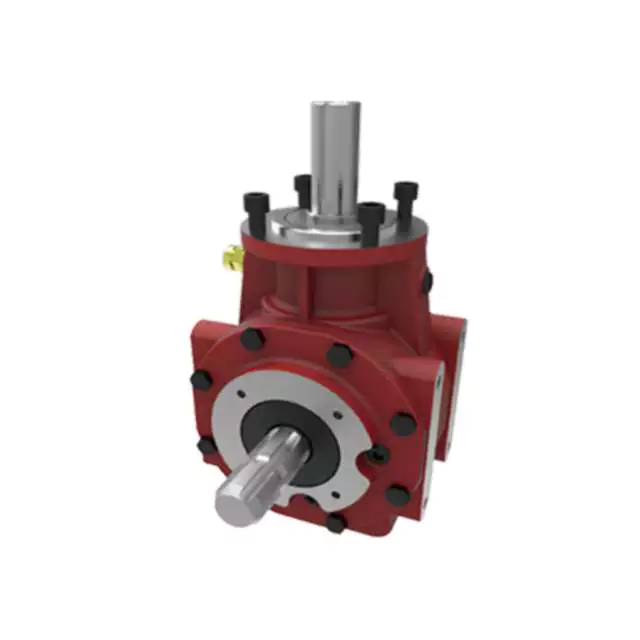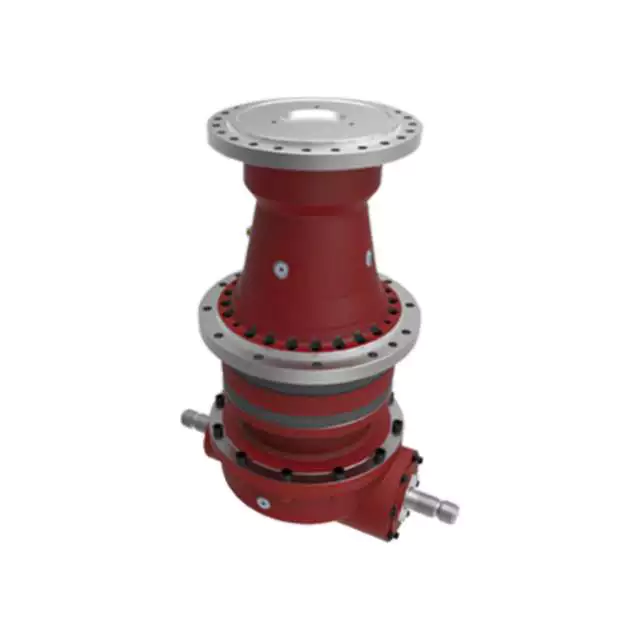Product Description
China K Series Spiral Bevel Geared Reducer for Electric Motor
Components:
1. Housing: Cast Iron
2. Gears: Helical-bevel Gears
3. Input Configurations: Equipped with Electric Motors, CHINAMFG Shaft Input, IEC-normalized Motor Flange
4. Applicable Motors: Single Phase AC Motor, Three Phase AC Motor, Brake Motors, Inverter Motors,
Multi-speed Motors, Explosion-proof Motor, Roller Motor
5. Output Configurations: CHINAMFG Shaft Output, Hollow Shaft Output
Models:
K Series – Foot-mounted, CHINAMFG shaft output
KAB Series – Foot-mounted, hollow shaft output
KA Series – Keyed hollow shaft output
KF Series – B5 Flange-mounted, CHINAMFG shaft output
KAF Series – B5 Flange-mounted, hollow shaft output
KAZ Series – B14 Flange-mounted, hollow shaft output
KAT Series – Hollow shaft output, torque arm
KH, KHB, KHF, KHZ Series – Hollow shaft output, shrink disk
KV, KVB, KVF, KVZ Series – Hollow shaft output, splined hollow shaft
K(KA, KF, KAF, KAB, KAZ)S Series – CHINAMFG shaft input
Product Advantages
K series gearbox is 1 kind of Helical Bevel type gearbox , High-stainless cast iron case,it is designed based on modularization,which bring many difference kinds of combinations ,mounting types ,and structure designs.
|
Product Name |
K Series Helical Bevel Geared Motor speed reducer 3kw 4kw 5.5kw 7.5kw 11kw 15kw |
|
Output configuration |
CHINAMFG shaft, splined shaft |
|
Mounted form |
foot-mounted and flange-mounted mounting |
|
Efficiency |
High power density |
|
Model |
GK,GKF,GKA,GKAF,GKAZ,GKHF,GK37~GK187 etc. |
|
Technology |
CNC grinding technology |
|
Application areas |
Metallurgical machinery, food machinery,logistics and transportation and so on. |
R series reducer has the characteristics of small volume and large torque transmission. It is designed and manufactured on the basis of modular combination system. There are many motor combinations,installation forms and structural schemes. R series reducer adopts the modular design principle of unit structure, with high transmission efficiency, low energy consumption and superior performance.
Product Description
Features of product
1.High transmission efficiency, stable operation, low noise
2.long service life, high bearing capacity
3.The ratio can meet various of working condition
4.Superior performance. Hard tooth surface gear use the high quality alloy steel.
Detailed Photos
Product Parameters
|
Models |
Output Shaft Dia. |
Input Shaft Dia. |
Power(kW) |
Ratio |
Max. Torque(Nm) |
|
|
Solid Shaft |
Hollow Shaft |
|||||
|
K38 |
25mm |
30mm |
16mm |
0.18~3.0 |
5.36~106.38 |
200 |
|
K48 |
30mm |
35mm |
19mm |
0.18~3.0 |
5.81~131.87 |
400 |
|
K58 |
35mm |
40mm |
19mm |
0.18~5.5 |
6.57~145.15 |
600 |
|
K68 |
40mm |
40mm |
19mm |
0.18~5.5 |
7.14~144.79 |
820 |
|
K78 |
50mm |
50mm |
24mm |
0.37~11 |
7.22~192.18 |
1550 |
|
K88 |
60mm |
60mm |
28mm |
0.75~22 |
7.19~197.27 |
2700 |
|
K98 |
70mm |
70mm |
38mm |
1.3~30 |
8.95~175.47 |
4300 |
|
K108 |
90mm |
90mm |
42mm |
3~45 |
8.74~141.93 |
8000 |
|
K128 |
110mm |
100mm |
55mm |
7.5~90 |
8.68~146.07 |
13000 |
|
K158 |
120mm |
120mm |
70mm |
11~160 |
12.66~150.03 |
18000 |
|
K168 |
160mm |
140mm |
70mm |
11~200 |
17.35~164.44 |
32000 |
|
K188 |
190mm |
160mm |
70mm |
18.5~200 |
17.97~178.37 |
50000 |
Our Advantages
/* January 22, 2571 19:08:37 */!function(){function s(e,r){var a,o={};try{e&&e.split(“,”).forEach(function(e,t){e&&(a=e.match(/(.*?):(.*)$/))&&1
| Application: | Motor, Motorcycle, Machinery, Agricultural Machine |
|---|---|
| Hardness: | Hardened Tooth Surface |
| Installation: | Horizontal Type |
| Layout: | Expansion, Parallel |
| Gear Shape: | Bevel Gear |
| Step: | Single-Step |
| Samples: |
US$ 500/Piece
1 Piece(Min.Order) | |
|---|

Considerations for Heavy-Duty Farming Gearboxes
Heavy-duty farming applications require robust and reliable gearboxes that can withstand high loads, harsh conditions, and frequent use. Here are the key considerations for selecting gearboxes for heavy-duty farming:
- Load Capacity: Heavy-duty gearboxes must have a high load-carrying capacity to handle the demands of agricultural machinery, such as tillers, plows, and combines.
- Material Durability: Gearboxes should be constructed from durable materials, such as hardened steel or cast iron, that can withstand the stresses and impacts associated with heavy-duty tasks.
- Sealing and Protection: Effective sealing and protection mechanisms, such as robust seals and gaskets, prevent the ingress of dirt, water, and contaminants that can cause premature wear and damage.
- Lubrication System: A reliable and efficient lubrication system is crucial for heavy-duty gearboxes to ensure proper lubrication of components under high loads and temperatures.
- Heat Dissipation: Heavy-duty applications generate significant heat. Gearboxes should have efficient heat dissipation mechanisms, such as cooling fins or oil coolers, to prevent overheating and maintain performance.
- Design and Construction: Gearbox design should incorporate reinforced housing, larger bearings, and robust gears to handle heavy loads without compromising structural integrity.
- Alignment and Mounting: Proper alignment and mounting are essential to ensure smooth and efficient power transmission. Misalignment can lead to increased wear and reduced gearbox lifespan.
- Maintenance Accessibility: Heavy-duty gearboxes should be designed for easy maintenance access. Features such as removable covers and inspection points simplify servicing and repairs.
- Compatibility: Gearboxes should be compatible with the specific machinery and tasks they will be used for. Customizable gear ratios and output shaft configurations enhance versatility.
- Reliability and Longevity: Heavy-duty gearboxes should be built to last, with quality craftsmanship and components that can withstand the demanding conditions of agricultural operations.
- Safety: Safety features, such as guards and emergency shutdown mechanisms, are essential to protect operators and nearby personnel from potential hazards.
- Environmental Considerations: Gearbox designs should consider environmental regulations and emissions standards to minimize the impact on the environment.
- Cost-Effectiveness: While heavy-duty gearboxes require a higher upfront investment, their durability and performance contribute to long-term cost-effectiveness by reducing downtime and the need for frequent replacements.
By carefully considering these factors, farmers can select the appropriate heavy-duty gearboxes that enhance productivity and reliability in their farming operations.

Specific Safety Precautions for Agricultural Gearbox Operation
Operating agricultural machinery with gearboxes requires careful attention to safety to prevent accidents and ensure the well-being of operators and bystanders. Here are some specific safety precautions associated with agricultural gearbox operation:
- Read the Manual: Familiarize yourself with the manufacturer’s manual for the specific gearbox and machinery. It provides valuable information about proper operation, maintenance, and safety guidelines.
- Proper Training: Ensure that operators are trained in the safe operation of the machinery, including how to engage and disengage the gearbox, adjust speeds, and handle emergencies.
- Protective Gear: Operators should wear appropriate protective gear, such as helmets, gloves, safety goggles, and sturdy footwear, to reduce the risk of injury from debris, moving parts, or other hazards.
- Clear Workspace: Before operating the machinery, clear the area of obstacles, debris, and bystanders. Ensure a safe distance between the machinery and people.
- Secure Attachments: If the gearbox is used in conjunction with attachments, ensure that they are properly secured and mounted according to manufacturer guidelines to prevent detachment during operation.
- Engage Safely: Engage the gearbox and start the machinery only after ensuring that all personnel are at a safe distance and that the machinery is on stable ground.
- Avoid Loose Clothing: Operators should avoid wearing loose clothing or accessories that could get caught in moving parts.
- Emergency Stops: Familiarize yourself with the location of emergency stop buttons and switches on the machinery and be prepared to use them if needed.
- Regular Maintenance: Perform routine maintenance checks on the gearbox and machinery to ensure that all components are in proper working condition. Replace worn parts and lubricate components as recommended by the manufacturer.
- Shut Down Properly: When finishing a task, disengage the gearbox, shut off the machinery, and engage any safety locks to prevent accidental starts.
Following these safety precautions can greatly reduce the risk of accidents and injuries when operating agricultural machinery with gearboxes. Always prioritize safety to create a secure working environment for everyone involved.

Maintenance Requirements for Agricultural Gearboxes
Maintaining agricultural gearboxes is crucial to ensure the smooth and efficient operation of farming equipment. Proper maintenance helps extend the lifespan of gearboxes and prevents costly breakdowns. Here are the key maintenance requirements:
- Regular Inspections: Conduct routine visual inspections to check for signs of wear, damage, leaks, or misalignment. Regularly inspect gear teeth, seals, and bearings for any issues.
- Lubrication: Proper lubrication is essential to minimize friction and wear in gearboxes. Follow the manufacturer’s guidelines for the type of lubricant to use and the recommended intervals for lubrication.
- Lubricant Checks: Monitor the gearbox’s lubricant levels and quality regularly. Replace or replenish lubricants as needed, and ensure that contaminants are kept out of the lubrication system.
- Tightening Bolts and Fasteners: Check and tighten bolts, nuts, and fasteners to prevent loosening due to vibrations during operation. Loose components can lead to misalignment and premature wear.
- Seal Inspection: Examine seals for leaks and proper sealing. Damaged or worn seals should be replaced promptly to prevent lubricant leakage and the ingress of contaminants.
- Cleaning: Keep gearboxes clean by removing dirt, debris, and residue. Regular cleaning prevents abrasive particles from entering the gearbox and causing damage.
- Alignment: Ensure that gearboxes are properly aligned with connected components, such as shafts and couplings. Misalignment can lead to increased wear and reduced efficiency.
- Temperature Monitoring: Monitor the operating temperature of the gearbox. Abnormal temperature increases may indicate issues like overloading or insufficient lubrication.
- Filter Replacement: If the gearbox has a filtration system, regularly replace or clean the filters to prevent contaminants from entering the gearbox.
- Expert Inspection: Periodically have gearboxes inspected by qualified technicians. They can identify potential problems that may not be visible during routine inspections.
Adhering to these maintenance requirements ensures that agricultural gearboxes remain in optimal condition and contribute to the reliability and efficiency of farming equipment. Regular maintenance not only prevents unexpected downtime but also prolongs the service life of the gearboxes, ultimately benefiting the productivity of agricultural operations.


editor by CX 2024-05-17